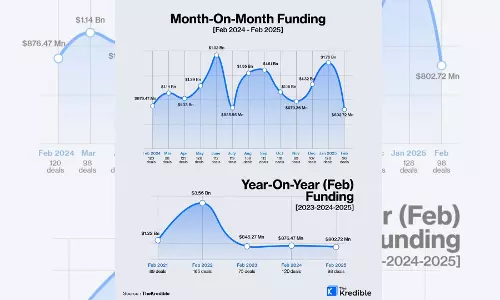Inflation dips to 18-month low
While the retail inflation dipped to an 18-month low of 2.19 per cent, the wholesale inflation fell to an eight-month low of 3.80 per cent.;

New Delhi: In December, India saw both retail and wholesale inflation fall due to softening in food and fuel prices evoking pleas from industry for an interest rate cut.
While the retail inflation dipped to an 18-month low of 2.19 per cent, the wholesale inflation fell to an eight-month low of 3.80 per cent.
The retail inflation which is based on the Consumer Price Index (CPI) was 2.33 per cent in November and 5.21 per cent in December 2017. The previous low inflation was 1.46 per cent in June 2017.
Food inflation in December remained in the negative zone at 2.51 per cent compared to (-) 2.61 per cent in the November. The rate of price rise in vegetables, fruits and protein-rich eggs continued to decline.
However, there was a marginal increase in prices of meat, fish, and pulses. Fuel and light inflation was 4.54 per cent in December, down from 7.39 per cent in November on back of reduction in prices of petrol and diesel.
“Led by continuing contraction in food prices, the softer CPI inflation was supported by contraction in fuel prices and housing (housing seeing a seasonal contraction) in December. However miscellaneous component led by education and health has inched up in December. Going forward we expect further downside in our average inflation projection of 4 per cent in FY 19, closer to 3.5- 3.7 per cent band,” said Shubhada Rao, chief economist, Yes Bank.
She indicated a low retail inflation may lead in RBI's Monetary Policy Committee (MPC) looking at cutting interest rate. “This paves way for the MPC to not just change its stance to neutral but also mull over a possible rate cut. The inflation trajectory looks below 4 per cent over the next quarter," she added.
Industry body Assocham said that continuing deceleration in the growth of WPI and softening of global fuel prices provide ample opportunity to MPC (monetary policy committee) to cut down policy rate at earliest which will kick start investment and revival in overall industrial growth.
“The decline in the inflation reading, which is well within the Central Bank’s medium-term inflation target, should induce the RBI to resume the accommodative policy stance to trigger the investment cycle and support growth by lowering the borrowing costs of industry,” said CII.


